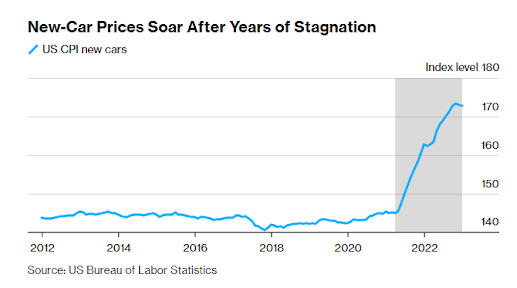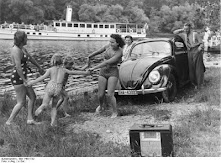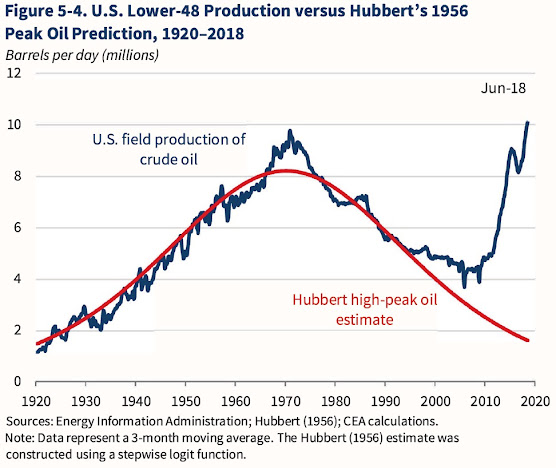By Bruno Grippay
Latour was always fair and grateful to the other thinkers that contributed to refine his ideas and concepts. One of them is the German philosopher, Peter Sloterdijk, who deeply questioned our Western obsession to worship the form of the Globe. We always refer to it to represent our planet, and we coat it of all its virtues; however, this representation of a sphere has no meaning.
The reality is that life on Earth should rather be represented by a thin layer on the surface of the planet, between the top of the upper atmosphere and the bottom of the sedimentary rock formations. Scientists revealed that this few kilometers thickness layer, this film, this envelope, this varnish, this small membrane is an extremely sensitive “critical zone,” fragile, perishable surface that needs to be treated very carefully.
We have been misled by the image of the Earth as a beautiful globe, a ship to carry humanity within the Universe. We believed that nature was indifferent to human actions, that we could generate growth, innovations, development as we wanted, using the resources of the Earth to our human benefit without any limits. Lastly, we discovered that this "critical zone" is intensely reactive to our human activities. This is Gaia, our tangible tiny and small cockleshell trembling beneath our feet. Here is the big difference between an Earth conceived as a Globe, and an Earth conceived as Gaia. It cannot be seen from above or from below, it can only be seen laterally. We are “facing Gaia”, which is the title of a memorable series of Latour’s lectures. It is not easy to represent it: in one of his conference, Latour used a famous canvas of Caspar David Friedrich to give an image of Gaia.
When Latour talks about the concept of Gaia, he often refers to the controversial English scientist James E. Lovelock and stands up for him. He defends his views whilst at the same time he recognizes the difficulty to describe such an evolving and unpredictable system. He also refers to the work of Hans Joachim Schellnhuber, a German physicist and climatologist, and particularly his
analysis of the Earth’s System. On top of that, I would recommend the two videos
here and
there, where Latour explains in detail why Gaia is not the Globe.
This misconception of the representation of the place we live is a major issue for our contemporary world, and Latour considers that we are in the storm of a revolution of a similar magnitude to the Copernican one. He calls it “The New Climate Regime”.
At the time of Copernicus and then Galileo, the heresy was to describe the Earth as “moving” around the sun and not being the center of the Universe. Today, heresy is to describe the Earth as “being moved” by humans’ actions (expression from Michel Serres, in the sense of manifesting an emotional reaction) and not being indifferent to us.
We know very little about the complexity of this “critical zone”. It is unstable, it is full of erratic and uncontrollable feedback loops, and it is not a unified system. This requires the associated work of all the scientific disciplines to put some light on it. It obliges us to change our perspective. Instead of looking up in the air, admiring a starry sky, imagining a beautiful globe with infinite view, and dreaming of virtual life, we are forced to look down to the ground, facing the dust, the mud, the limited view of the soil, and recognize where our real life stands.
Why is it so complicated to admit that Gaia could be a sensitive living organism? Here, we must return to the 17th century for some explanations. With his art of mixing the disciplines successfully (here with a book written by Steven Shapin and Simon Schaffer), Latour used a key moment in history to support his demonstration, which is the dispute between two inheritors of Galileo: the political philosopher Thomas Hobbes, and the natural philosopher Robert Boyle. Both thinkers had the same ambition: find a way to bring an end to the multiple civil wars. Both were rationalists, they agreed on almost everything, they wanted “a king, a Parliament, a docile and unified Church”. However, they diverged on a fundamental point that would continue to govern our behaviors from there until today: the distribution of scientific and political power.
For Hobbes, Power was Knowledge. To reach a peaceful society he wanted to establish a strict control on immaterial beliefs (spirits, phantoms, souls…), implement a sovereignty with One Power that would ensure that there is only One Knowledge. On the other hand, Boyle was searching for the peace by promoting scientific knowledge. His approach was to gather witnesses in a laboratory to attest the existence of facts, the “matter of facts”. The participants of these experiments were not supposed to give an opinion, but to observe a phenomenon in a predefined environment. Boyle “invented the empirical style that we still use today”. One of his most famous experiments was to demonstrate the possibility of producing an invisible vacuum from an air-pump.
When Hobbes heard about Boyle’s scientific experiments, and the discovery of vacuum from the air-pump, he fell from his chair. This kind of knowledge would bring disputes, arguments, immaterial beliefs, and would eventually challenge the Sovereign’s authority, so it should be eradicated. This quarrel between the two philosophers is at the source of the separation between culture and nature in the Western world, and this gap has widened since.
Still, today, we consider that humans are different, that culture has no relation with nature, that we can establish a human society to dominate nature without any impact on our life. This is one of the reasons why it has been so hard to believe that Gaia could be sensitive to human actions.
For Latour, these separated notions of culture and nature have no meaning; they should not exist, they are just the result of this initial political division. Our culture has used the concept of nature to organize its political life. But nature has no reality. We even dream about traditional societies who would live in harmony with nature, but no: “they are unacquainted with it”.
This brings us to another fascinating concept of Latour: the actor-network theory. To understand a system, we must examine the relationships between multiple entities, not only humans, but also plants, animals, objects, technical elements, artefacts, etc., because they all influence each other. Humans are just an agent like any other non-humans. All of the entities produce an impact around them; they are all actors in the overall system. Biological forms are not made of parts and holes, they are overlapping entities which cannot be well understood if you only study them one by one. We live in a collective world where humans and non-human entities are closely intertwined together.
It reminds me of a memorable night in Japan during a dramatic time. After the Fukushima catastrophe, we were walking on the beach in Kamakura when my Japanese friend told me that she had spent the last few days standing up in front of the ocean and asking for forgiveness. In her eyes, she could not help sensing the pain of what humans had done to the sea and its inhabitants. She felt a need to share her sorrow hoping that she could reconcile humans with the ocean. We spent the evening discussing the entanglement of humans and the sea and its surrounding elements. We are not above nature, we belong to it, our lives are interlaced between each other. We depend on all the entities who allow us to live.
This interlinkage between humans and non-human entities generates a proliferation of hybrids. Latour has dedicated many pieces of work to talk about this hybrid phenomena which is essential to understand his philosophy about the operation of a complex system. Then, if we believe in this close interaction between humans and non-humans, we should challenge the concept of sovereignty from Hobbes, because it cannot work in a world where all these entities totally overlap.
In May 2015, a few months before the Paris COP agreement, Latour gathered around two hundred young people from thirty different nations for a few days to establish a parliament representing all humans and non-human entities to negotiate on the climate. Its purpose was to simulate a COP with the representation not only of nations, industries, NGOs, and unofficial lobbies and ideologies, but also of entities like land, oceans, rainforests, soil, atmosphere, oceans, and endangered species. In his Eighth Lecture of “Facing Gaia”, Latour writes: “a simulated negotiation over the climate is no more and no less enlightening than readings on political philosophy or my own very hesitant writing of these lectures.”. For the skeptical ones, he also adds: “If you are surprised to see ‘Forest’ given a voice, then you have to be just as surprised that a president speaks as the representative of ‘France’.”
This was the first experiment of what Latour called a “Parliament of Things”. The results were exceptional and should be a lesson to our real world and our repeated COP failures. All representations were inside the main negotiation room, even the strangest but influential ones like the “Stranded Petroleum Assets”, which is not the case in a real COP where all lobbyists are coming in from the outside with obscure intentions. Furthermore, scientists were simply added to the representation as normal spokespersons without any specific status. No one was there to represent nature, because, as we have seen above, it does not exist, and Gaia is not a unified system. Every representation was acting in its self-interest, which was fundamental to ensure the accuracy of the experiment. A striking result was that when you add representations for City, Land, Sahara, Amazon and so on, it completely modifies the balance of power with the old nation-states. You trace new forms of sovereignty which are no longer between nations, but between territories, and this brings us back to the land, the soil, the sea, and the water that we need to care about to protect ourselves.
I would have been so happy to join this first Parliament of Things organized by Latour with the help of a French historian of science, Frédérique Aït-Touati. I don’t know if this experience has been replicated. My wish is that the President of one of the next COPs has the ambition to organize such a Parliament of Things. This could dramatically change the way that these conferences are organized and hopefully make them more of a success!
The task that Latour gives us is to reimagine, three centuries later, what it means to reorganize the whole policy of sovereignty around the acknowledgment of Gaia and the interaction between humans and non-humans. For the young generation, Bruno Latour had an exciting and enthusiastic message. It is time for them to roll up their sleeves and undertake a similar revolution as happened in the 17th century: to completely redefine politics, get rid of traditional sovereignty, challenge private property, define new authorities, open parliaments to non-humans, foster subjectivity to compose a new good and common world. Doesn’t it sound like a plan?
2. The detective Bruno Latour and Aramis Unloved
We used to believe that a successful project is one that has been well conceived from the beginning, compared to a failed one which would have been poorly defined upfront. For Latour, it is a wrong judgment, because we forget to consider the interaction between all entities during the development phase. To illustrate his statement, Latour provides two models of the development innovation process:
- The linear or diffusion model. Here, the project is clear, established and broadly communicated from the beginning. A key consequence is that it will generate jealousy and negative reactions from groups who are reluctant to this technological progress. Often, the project will eventually fail because of controversy and lack of wide engagement. It would require heroic and courageous people to bring it to the end with minimum adjustments.
- The whirlwind or translation model. The project starts with a vague idea that is not well formalized. But fortunately, it progressively arouses some interest from different groups that work on it and give it more substance. The project will become consistent, and the groups will be ready to endorse it. They will eventually fully adopt the project and make it happen with major transformations. It will be recognized as a successful project.
This contradictory statement is the result of the application of the Actor-Network Theory and the fact that we are all hybrid entities. During the life of a technological project, the final product does not exist yet. It will turn into an object only when it is finished. During the development phase, it is a subjective item that can be abandoned or transformed by the influence of many entities which are interacting with each other, not only humans. An impactful report, the weather of the day, poor digestion, can change the interpretation of an engineer who would indirectly influence other people on the project. All actors must negotiate with each other to get things done. We are all hybrid entities who need to interact with each other to act and make judgments. Latour applied these principles to his analysis of the history of the Aramis project.
This investigation brought me back in time. I realized that we have been running around the same mobility issues for fifty years and maybe more. Indeed, the Aramis project started in 1970 and lasted for seventeen years until its death. The innovation was to build little automated cabins (4 seats) that would transport passengers from one point to another without intermediate stops, with close enough location points to provide a kind of on-demand “door-to-door” service. The individual cabins would run at 50 km/h on rails and could join other cabins by contactless magnetic coupling system during part of the journey, forming a train. This technology was called Personal Rapid Transit (PRT), with several similar projects in Europe, Japan, and the USA. Latour studied the one developed in the south of Paris, which was one of the most promising projects globally.
The book tells the story of a young sociologist who is the assistant of a senior inspector, depicted as a mixture of Sherlock-Columbo. In the introduction, the experimented detective, called Norbert, stated in a funny way the purpose of Aramis. You will notice that nothing has changed, and we could say the same in today’s world: “If I take my car, I’m stuck for hours in traffic jams. If I walk, I breathe carbon dioxide and get lead poisoning. If I take my bike, I get knocked down. And if I take the subway, I get crushed by three hundred people. Here, for once, we have no problem understanding the engineers. They’ve come up with a system that allows us to be all by ourselves in a quiet little car, and at the same time, we’re in a mass transit network, no worries and no traffic jams.” This was exactly the intention set for Aramis to discourage people from using their cars and shift to this on-demand, flexible transportation mode.
The hilarious tone of the investigation will continue with ups and downs all throughout the book, mixing interviews of a multitude of actors who are giving explanations all over the place about the reasons for the death of the project. These actors are ministers, directors, managers, engineers, and economists but also a motor, a chip, a chassis, and a shock absorber, which are giving their opinion about the project, applying the principle that all entities, including non-humans, are interacting between each other, and impacting any innovation project.
Many reasons for failure were given along the investigation, but none of them were strong enough to explain the abandonment of the project. Amongst the different reasons, I selected the following ones:
- The technological complexity of doing automatic magnetic coupling and uncoupling of moving vehicles at high speed.
- The need for each cabin to be equipped with its own computer to handle and control all operations and be able to supervise itself.
- The design of the cabin to be created with different patterns than traditional mass transit, otherwise, the chassis would be too heavy.
- The importance to ensure the safety of one single person getting into a cabin where there may already be passengers who look suspicious. A sarcastic observer said ironically in one of the interviews that they had “invented the rape wagon.”
- The need to double the rail infrastructure to allow uninterrupted journeys for the individual cabins that would be too high investment.
- The difficulty to manage the fleet of vehicles which could end up being stuck at the most popular destinations and missing at remote places, or all parked at the end of the line in the evening.
- The complexity to handle the variation of passengers, particularly at rush hours (I learned a funny concept about the maximum number of bodies that can be fully packed in a wagon for evaluating traffic at rush hours!). Although, Aramis had too little flexibility by being limited to 4 seated passengers per cabin.
- The concern of the Budget department regarding the high costs that could not be compensated by potential revenues. But the forecast of consumer demand and interest can be adjusted to make a project profitable or not, shaping these potential revenues constitutes an integral part of the project.
- The big challenge of the security of the system, because every possible type of breakdown had to be studied, and it was impossible to imagine all potential failures for the software which was built with thousands of instructions.
- The issue to protect the collective property of the cabins against vandalism.
- The instability of the owner of the project who changed several times, with key divisions (like Bus or Subway Departments) not involved enough.
- The overlapping with several other projects at the same time, and not enough resources (budget and engineers) to manage all of them, including Aramis.
- The lack of flexibility of the system which did not accommodate for handicapped persons, for very tall people, or for luggage.
What I found interesting in this non-exhaustive list is that many of the reasons given are not technological. Latour expresses it very well by saying: “The more a technological project progresses, the more the role of technology decreases, in relative terms: such is the paradox of development.”
Towards the end of the inquiry, after many twists and turns, our two detectives realized (here the young sociologist imagined himself as Hercule Poirot) that the project remained identical after these seventeen years. A lot of discussions happened, but eventually no transformation, no negotiation was done to modify and improve the project. Aramis remained exactly the same in 1987 as it was at the beginning in 1970. It turned out that there was no intention or willingness to compromise and make this project happen. The explanation finally dawned on our both inspectors that the project was missing something crucial for its success, something that nobody during the interviews and no other entity had raised as a concern, something untouchable but essential for any project: the love for the technological innovation.
The final sequence of the book is the traditional restitution of the investigation, like in a detective novel. But Latour added a gothic touch, as in the “Frankenstein” story from Mary Shelley, by giving the voice to Aramis itself who expressed its frustration for not being alive: “No, no, you didn’t love me. You loved me as an idea (...) If you cannot reach agreement on my behalf, if you refuse to negotiate with one another over what I am supposed to be, it’s because you want me to stay in limbo forever (...) I’m just something to talk about. A pretext-object. (...) You hid from one another in order not to admit that you didn’t want me. (...) What horrible hypocrisy!”
In the epilogue, there is an effect of mise-en-abyme when Norbert says that he would like to publish the story of Aramis, which was the intention of Latour in writing the book. His argument is that “it would be good for educating the public, for getting people to understand, getting them to love technologies. I’d like to turn the failure of Aramis into a success, so it won’t have died in vain.” This book gave a new life to Aramis thanks to the interest of the readers who can continue to talk about this project (like me) and get it out of the limbo. This book demonstrated also, by its simple existence, the influence of a non-human object on a human life.

Related articles:
Future of Mobility #13:
The need for collaborative leadership.Future of Mobility #11:
when Nature becomes a legal person...Future of Mobility #3:
Future Design in Yahaba, Japan.Future of Mobility #2:
What automakers need to do in making Vehicle-to-Everything a reality. 

















